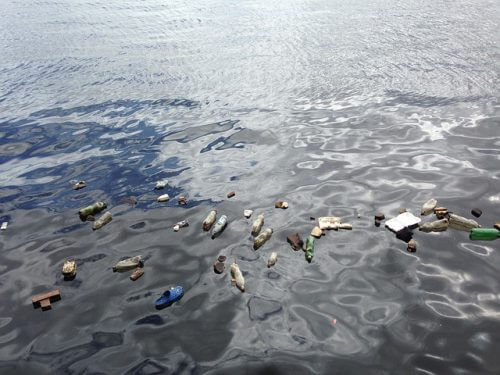Currently, biodegradable plastics remain in our environment for several months to several years. Although this is a significant improvement over "normal" plastic, which degrades only after thousands of years, biodegradable plastic also has another notable drawback - until today, to produce such plastic, a huge amount of fresh water had to be invested in the production process. Now researchers at Tel Aviv University say that it is possible to use algae grown in salt water

Biodegradable plastic is the future. We would be happy for the plastic bottle we brought yesterday from the supermarket to destroy itself by the end of reading this article, but we are not there yet. Currently, biodegradable plastics remain in our environment for several months to several years. Although this is a significant improvement over "normal" plastic, which degrades only after thousands of years, biodegradable plastic also has another notable drawback - until today, to produce such plastic, a huge amount of fresh water had to be invested in the production process. Fresh water is a precious resource, and global warming also makes us realize that we have no water to waste. so what are we doing? Researchers from Tel Aviv University succeeded in overcoming the problem, and produced a plastic polymer from ancient microorganisms and algae grown in seawater.
Environmentally friendly but wasteful of resources
Plastic is one of the most problematic and widespread pollutants in the world. It is a polymer produced from petroleum products for industrial use, the processing of which releases chemical pollutants as a by-product. Modern life encourages us to consume more and more products that are made or packaged in plastic, which is thrown away after a short use but does not disappear. We are often exposed in the news broadcasts to the surreal sight of plastic islands in the oceans, made of bottles, packaging and bags, polluting the environment and posing a danger to animals.
The solution to the plastic epidemic that is being implemented today is bioplastic: plastic produced from biopolymers such as plants or bacteria, which does not require oil and degrades quickly. It sounds good, and there are already many factories that produce this type of bioplastic in commercial quantities, but it turns out that even the use of biopolymers has a price: to grow the plants and the bacteria that are used to make it, you need areas of fertile soil and mostly fresh water, which are considered limited and expensive resources. Therefore, the transition to bio-plastics is still considered problematic and unprofitable in water-poor countries like Israel.
In a multidisciplinary study led by Dr. Alexander Gulberg from the Porter School of Environment and Earth Sciences, and Prof. Michael Gozin from the School of Chemistry, the researchers were able to produce biopolymers in a process that does not require agricultural land or fresh water. The results of the revolutionary research were published in the prestigious journal Bioresource Technology.

to turn back the wheel of pollution of the earth
"The raw material we used to create the biological plastic was multicellular algae that grow in the sea," explains Dr. Gulberg. "The algae ate single-celled archaea (microorganisms without a nucleus and organelles), which also grow in very salty water. They then fermented and created the biological polymers. This is a significant breakthrough. The process we are proposing will also allow countries suffering from a shortage of fresh water, such as Israel, China and India, to switch to biodegradable plastic."
According to Dr. Golberg, the new research could revolutionize the reduction of the burden of plastic from the environment: "Plastic from fossil sources is one of the most polluting factors in the oceans. On the other hand, the production process of biodegradable plastics requires important resources, which are also diminishing. A country like Israel, which is a large consumer of plastics, will not allocate vast areas and precious water to produce biopolymers. In our research, we were able to prove for the first time that it is possible to produce bioplastics in a process that is friendly to both the environment and the residents."
These days the researchers are working on the accuracy of their method by using different bacteria and different algae to produce the plastic. "We are currently trying to understand how different strains of bacteria lead to different fermentation among different species of algae," says Dr. Gulberg. "Each algae produces a different sugar, so the final plastic product is also different. Our goal now is to find the bacteria and algae most suitable for producing polymers for plastics."
More of the topic in Hayadan:

One response
An extremely important study